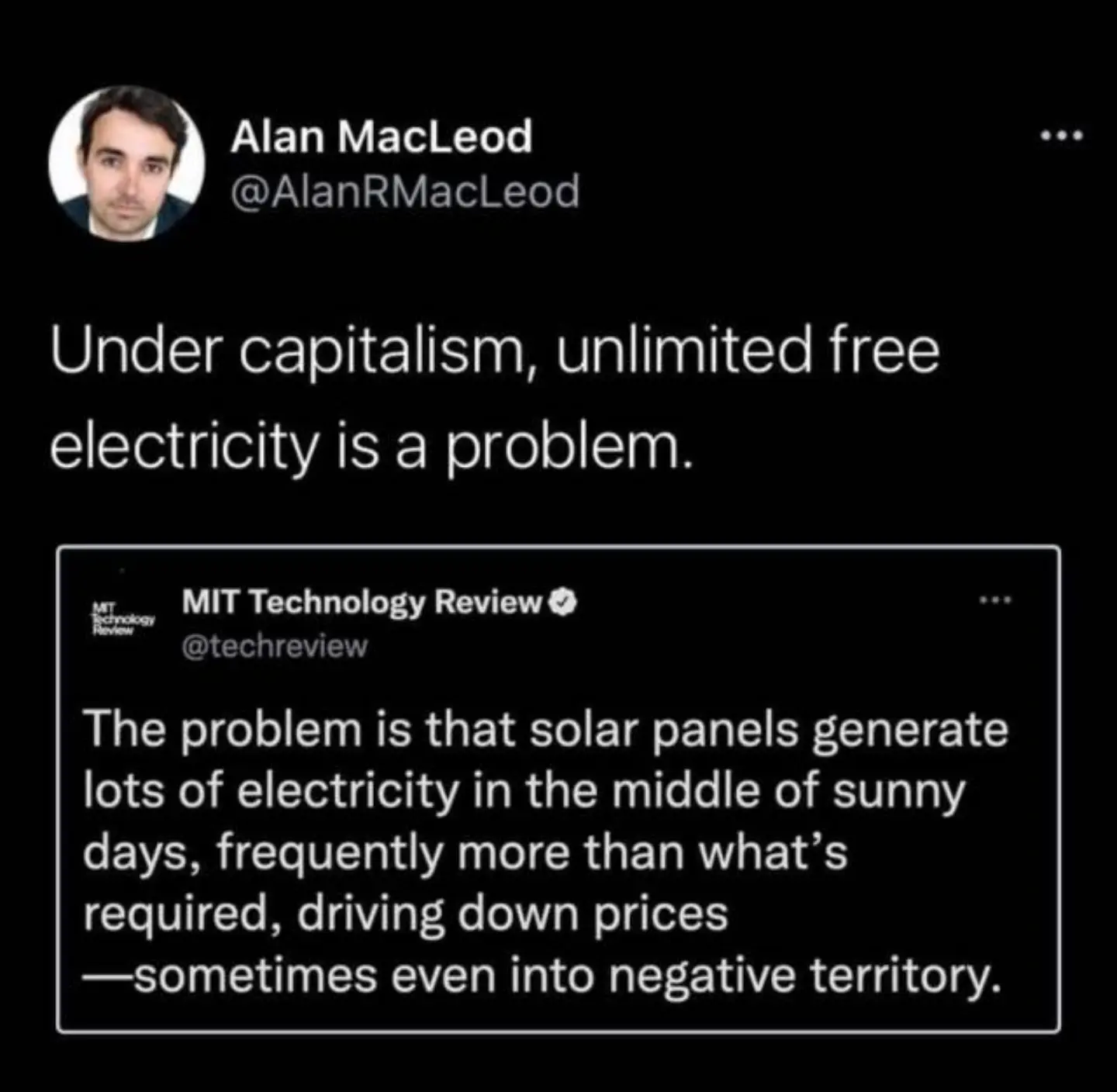this post was submitted on 09 Apr 2024
1655 points (96.0% liked)
Solarpunk
5430 readers
10 users here now
The space to discuss Solarpunk itself and Solarpunk related stuff that doesn't fit elsewhere.
Join our chat: Movim or XMPP client.
founded 2 years ago
MODERATORS
you are viewing a single comment's thread
view the rest of the comments
view the rest of the comments

Thats basically how its done in most of Europe. Price changes every 15 minutes and some smart system starting washing machines etc if a certain threshhold is reached.
Of course you can also get a hedged contract where you pay a fixed price and don't need to care about it, but you have the choice.
Uh, in my part of Europe we don't have 15-minute changes, that would be a nightmare.
You can have a contract where the day is split in 3 or 4 different rates, so that it's cheaper to run your washing machine at night for instance.
I don’t get why that would be a nightmare. In my country the electricity prices change per hour for dynamic contracts (they just follow the energy market) and with normal usage it’s cheaper on average than fixed contracts, including those with peak and off-peak rates. For gas it’s a day price, again same as the energy market. For both electricity and gas the prices for the next calendar day are published in the afternoon (that’s how the energy market works). The companies charge a little extra per unit and a small fixed fee per month.
Contracts with fixed rates (including nighttime and daytime rates) have to buy in advance, which means that unforeseen circumstances are included in the price and they also have to account for the fact that they might need to buy extra or sell off their excess based an actual usage.
It's priced per hour, and fairly low slopes, I think. Haven't looked at actual smart grids, though. Basically you'll know that electricity will be cheap (or even negative net) the following night or day or that there will be certain very expensive peak times from 8-10 and 15-17 or so.